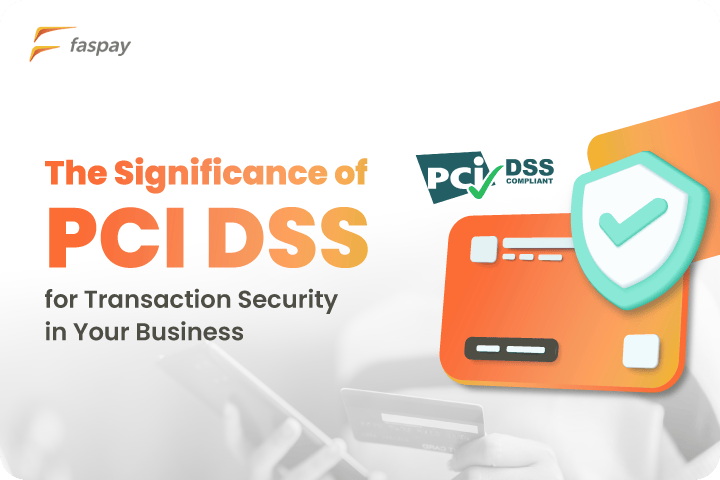Faspay Blog
Cari tahu tentang tips bisnis online, teknologi pembayaran,
pemasaran digital, dan segala yang ingin diketahui tentang Faspay

In the midst of rapid business growth, data security has become a top priority for any business operating in the digital world. In an effort to protect sensitive customer information and ensure secure online transactions, the Payment Card Industry Data Security Standard (PCI DSS) emerged as a crucial framework for every business that aims to ensure optimal data protection and guaranteed transaction security.
What is PCI DSS?
Payment Card Industry Data Security Standard (PCI DSS) is a security standard designed to protect payment information and customer credit card data. Developed by the Payment Card Industry Security Standards Council (PCI-SSC), this standard aims to reduce the risk of identity fraud and data leaks that can harm customers and companies. PCI-SSC was formed through the collaboration of several financial institutions, including American Express, JCB International, Discover Financial Services, Visa Inc, and MasterCard Worldwide. PCI DSS requires companies that process, store, or transmit payment card data to implement certain security measures to protect sensitive customer information.
Faspay, as a payment gateway, has PCI-DSS Level 1 certification which is regularly renewed through an audit process every year. This certification shows that Faspay has successfully fulfilled the 12 standard requirements needed to obtain and maintain PCI-DSS Level 1 certification. In an ever-evolving industry, compliance with security standards is a vital foundation for payment service providers to build trust and ensure safe and reliable operations. Here are the 12 requirements that must be met to obtain PCI DSS compliance certification:
- Maintain a strong firewall to protect customer data.
- No default passwords should be used and sensitive security data should be protected with encryption.
- Protection of stored credit card data should be optimized.
- Network security should be maintained through the implementation of strong security measures.
- Vulnerable systems and applications should be maintained and updated regularly.
- Strict access management should be implemented to ensure only authorized personnel can access customer data.
- Each individual with access to payment card data must have unique identification.
- Physical access to customer data should be limited and strictly monitored.
- Security monitoring and testing systems should be implemented regularly.
- A strong information security policy should be established and implemented throughout the organization.
- Everyone working in the organization should be provided with data security training on a regular basis.
- A PCI DSS compliance assessment process should be run periodically to ensure that the organization continues to meet the set security standards.
The standard applies to all organizations involved in payment data processing, including e-commerce companies, payment service providers, and financial institutions, among others, that store, process, or transmit cardholder data. However, in the actual verification process, the requirements that need to be met often vary depending on the number of transactions performed.
Importance of PCI DSS
The primary objective of the Payment Card Industry Data Security Standard (PCI DSS) is to ensure the protection of customer payment data and minimize security risks associated with payment card transactions. Some of the specific objectives of PCI DSS include:
1. Protecting Customer Data
The standard aims to protect sensitive customer data, including credit card information and other payment data, from unauthorized access and misuse.
2. Preventing Fraud
PCI DSS aims to reduce the risk of fraud and identity theft by ensuring that proper security systems are in place to protect every point of transaction data.
3. Increasing Customer Trust
Through the fulfillment of strict security standards, PCI DSS aims to build greater trust between businesses and customers, ensuring that customers feel safe in using their payment cards.
4. Improving Transaction Security
The standard aims to ensure that every payment transaction is processed through a secure infrastructure, reducing the risk against data theft and other illegal activities.
5. Prevent Legal Violations
PCI DSS aims to ensure that businesses comply with security regulations set by payment authorities and prevent potential legal sanctions that could arise from data security breaches.
The importance of PCI DSS is obvious, especially in protecting customer payment data and ensuring secure transactions. In this context, the right choice for businesses is to choose a payment service that is PCI DSS certified. Faspay, as a payment gateway that has adopted this security standard, offers a reliable and secure solution for your business. Register your business here and your business can operate with the highest security standards to protect customer data and ensure smooth transactions!






